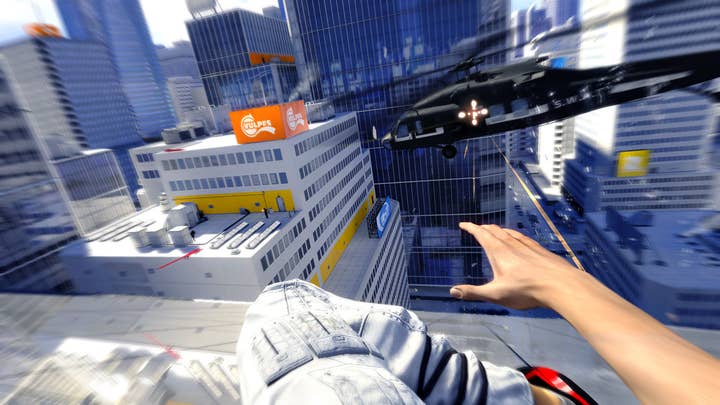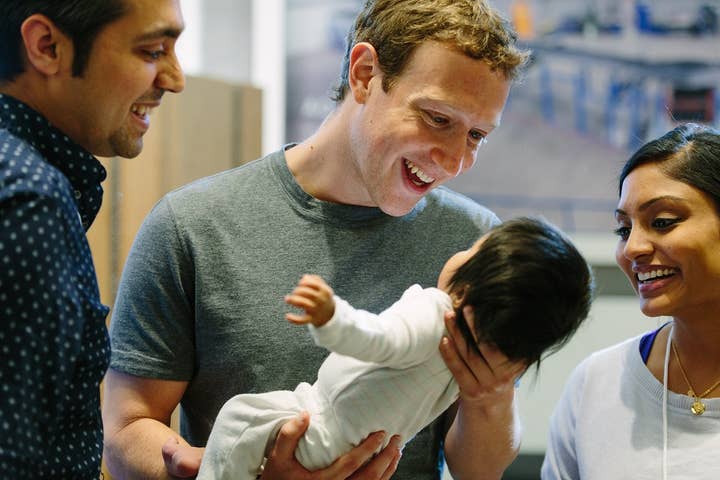The thing about trolls is they regenerate | 10 Years Ago This Month
It's time to tell the scary story of Edge Games, Tim Langdell, and the trademark dispute that would not die
The games industry moves pretty fast, and there's a tendency for all involved to look constantly to what's next without so much worrying about what came before. That said, even an industry so entrenched in the now can learn from its past. So to refresh our collective memory and perhaps offer some perspective on our field's history, GamesIndustry.biz runs this monthly feature highlighting happenings in gaming from exactly a decade ago.
Langdell Loses his Edge
A couple Octobers ago, we told the exceedingly spooky story of Electronic Arts the unstoppable serial killer. This year's column gives us a chance to tell another scary story with a chilling reminder that horror movie monsters never really stay dead.
Back in the '80s, there was a UK publisher called The Edge (previously Softek), which was founded by Tim Langdell. The company produced games for the Commodore 64, Amstrad, ZX Spectrum, Amiga, etc., some of them originals like Quo Vadis, Bobby Bearing, or Fairlight and others based on licensed properties like Snoopy: The Cool Computer Game or Garfield: Big, Fat, Hairy Deal.
Langdell is most remembered these days for hassling a whole lot of other developers for daring to use any variation of the word "edge" in their gaming endeavors
But Langdell's enduring legacy isn't as a businessman and designer during a formative time in the medium's development, or as a former board member of the International Game Developers Association. Instead, he is most remembered these days for hassling a whole lot of other developers for daring to use any variation of the word "edge" in their gaming endeavors.
Langdell did have a number of trademarks on Edge and he pursued them vigorously. Langdell and his company received a total of £295,000 from Future Publishing to license and then purchase the right to use the name for Edge Magazine. Namco changed the name of the arcade fighter Soul Edge to Soul Blade for its international home release in part to avoid a legal fight. (Langdell filed a US trademark application for "Soul Edge" in April of 1997, more than a year after the game first arrived in arcades).
When David Papazian's Edge became an iPhone hit in 2009, Langdell threatened legal action, demanding he stop using the name and hand over a quarter of its revenues to that point or license the Edge name, paying 10% of revenues in perpetuity and specifying in the title that it was an homage to an early Edge game Papazian wasn't familiar with. Worried about an expensive legal battle, Papazian pulled the game from Apple's storefront.
But Langdell didn't limit his threats to people without the resources to fight back. He had also been pestering Electronic Arts about its 2008 release Mirror's Edge. However, EA pushed back, continuing a hallowed tradition of scary monsters turned antiheroes, like Venom, Godzilla, and Macho Man Randy Savage. Langdell responded in kind, suing EA for trademark infringement and setting in motion his own downfall.

The judge not only sided with EA, but accused Langdell of doctoring the evidence he submitted
Such legal fights often play out slowly, but this one was a first-round knockout for EA. In October of 2010, less than four months after Langdell filed the suit, a judge tossed it out and accused Langdell of doctoring some of the evidence he submitted to prove he had actually been actively using the trademark for business and not just suing people over it. For example, he produced a box for a game Edge supposedly produced in 2004, but it contained a website address Edge had not even registered until 2008.
"The record contains numerous items of evidence that plaintiff willfully committed fraud against the [US Patent and Trademark Office] in obtaining and/or maintaining registrations for many of the asserted 'EDGE' marks, possibly warranting criminal penalties if the misrepresentations prove true," the judge ruled.
Days later, Langdell agreed to a final order in which he would not admit wrongdoing, but five of his edge-related trademarks would be terminated. And although Langdell had already resigned from his position on the IGDA board due to member backlash, the IGDA kicked him out of the organization entirely after the ruling, saying, "any member may be removed from membership if the member has demonstrated a lack of integrity or unethical behavior, as determined by the Board of Directors."
As if that wasn't enough, back in the UK Future Publishing had also had enough of Langdell. As reported by Rock Paper Shotgun, Future took him to court for copying the logo of Edge Magazine and selling merchandise with it on CafePress. Langdell said the logo was originally his own design, and produced a 5.25" floppy disc with the original 1991 file on it. However, a computer expert found that the floppy had actually been created with Windows 95, and that judge ruled in favor of Future.
That ruling came in June of 2011. The US patent office officially cancelled five of Langdell's trademarks in 2013, and as far as the headlines and news coverage went, that was that.
But as with any good horror movie monster, the industry needs to be very careful about when it lets its guard down. While looking to see what Langdell is up to these days, we found the story didn't really end in 2013 at all.
A couple months after Langdell's Edge trademarks were cancelled, Papazian's company Mobigame filed its own trademark application for the use of "Edge" in computer games and entertainment. As you might have guessed, Langdell objected.
The fight dragged on for years, until Mobigame missed a deadline on some paperwork and its trademark application was abandoned in early 2019. Mobigame has since requested that the USPTO Trademark Trial and Appeal Board reinstate the application, but it may be too late.
The abandonment of Mobigame's application cleared the way for three of Langdell's own years-old trademark applications for "Edge Games," "Edge PC," and "Edge Gaming PC." Langdell asked the USPTO to reconsider his trademark requests, which have since been registered and are now active. Edge Games went through last December; the other two went into effect in February of this year.
"[T]he USPTO had all the proof to stop him... Yet the USPTO did nothing. Now Tim Langdell and Edge Games are totally free to start again"
Mobigames
"We have been fighting trademark troll Tim Langdell for 10 years," Mobigame said in a filing with the Trademark Trial and Appeal Board in August. "At any time during Edge Games' groundless opposition, the USPTO might have sanctioned him, but it never did so…
"Many companies have been extorted by Tim Langdell and Edge Games during this time, and this is only because the USPTO let him register his trademarks with doctored, fake specimens and based upon his lies about his nonexistent business activity. However, the USPTO had all the proof to stop him, and it knew all along that Tim Langdell was perpetrating a serious fraud. Yet the USPTO did nothing. Now Tim Langdell and Edge Games are totally free to start again."
In his own filing days later, Langdell called Mobigame's statements "outrageous and defamatory," then goes on to say that Electronic Arts was the party that fraudulently doctored evidence in the Mirror's Edge case to make it look like Langdell's evidence had been doctored.
"Mr. Papazian lives in a fantasy world where he believes Edge or its CEO were found to have committed fraud or somehow behaved badly -- that is not the case," Langdell said.
The Trademark Trial and Appeal Board has yet to rule on Mobigame's request to reinstate its trademark application.
Update, February 2, 2021: Langdell has reached out to GamesIndustry.biz to contest this article, saying, "I am not, nor have I ever been, a 'trademark troll.' Neither I nor Edge has ever hassled companies, demanding money from them if they dared to use our Edge mark. There is not the slightest evidence in our 36+ years of trading that we/I ever claimed to own the mark Edge without using it or have ever sued anyone to force them to give us money if they didn't stop using our mark."
'Tis the Season
EA may have appeared to have taken down an unpopular industry figure in Langdell, but the publisher's reputation didn't really improve that much as a result. Part of the reason for that might have been that the company was still doing things like laying off scores of people across EA Canada and downplaying it in the press as simply a "seasonal" trimming of headcount.

"As you know, seasonal roll-offs that follow game launches are common - and vital to maintaining a healthy business," an EA representative said. "Because so many of our games ship in the holiday quarter, team size adjustments tend to follow in the same timeframe. At the same time, EA is growing and several of our studios are looking to hire talented people."
As grim as it is to view upending so many people's lives as a bit of routine maintenance like changing the oil in your car, the EA rep was right that layoffs were common, but for a whole host of reasons.
That same month, Activision Blizzard laid people off at Raven Software. It also took the Tony Hawk franchise away from Tony Hawk Ride and Tony Hawk Shred developer Robomodo, prompting layoffs at that studio. Disney laid off 100 people at Propaganda Studios. Subscription gaming service GameTap shut down its Atlanta offices, while Microsoft pulled the plug on in-game ad firm Massive four years after acquiring it.
N-Space laid off so many people it had to deny that it was closing entirely. Krome also laid off so many people it was reported as shutting down, although we would learn the next month it was still alive. The Ship developer Outerlight was not so fortunate; reports of its demise turned out to be accurate.
Good Call, Bad Call
BAD CALL: A month before the launch of Kinect, future Xbox head Phil Spencer says that the camera peripheral will become as integrated with the Xbox experience as Xbox Live is. It was a centerpiece of the disastrous Xbox One launch in 2013 and came packed in with the system itself, but it only took six months for Microsoft to make it an optional accessory and discontinued it entirely in 2017.
GOOD CALL: Spencer's quote from the same article: "I think over time for first party, you're not going to see that differentiation between 'Is that a Kinect game?' and 'Is that not a Kinect game?'" Turns out that's true for third-party titles, too!
GOOD CALL: Splash Damage's Paul Wedgwood identifies a key problem the industry is still struggling with, saying, "If there's one thing we suffer from in the UK, it has been this continuous exploitation of game developer talent until we drive them into the ground and they become cynical and burned out and hate the industry and everything else."
BAD CALL: Wedgwood's implied solution to that problem, which began and ended with paying people well.
GUTSY CALL: InstantAction chose the notoriously unforgiving rhythm genre as the ideal game to show off its browser-based streaming tech. (It did not turn out as hoped.)
GUTSY CALL: Panasonic of 3DO fame re-enters the hardware market with the announcement of its dedicated handheld, The Jungle.
PROBABLY A GOOD CALL: Panasonic would lose its nerve and kill the project just five months later, before it could hit shelves.
BAD CALL (for us): The industry-tracking NPD Group stopped publicly reporting unit sales for hardware and the best-selling software each month. At the time, the firm told us it was because the numbers didn't include digital or pre-owned sales and caused "unnecessary angst" that the industry was in worse shape even though total spending was up.
Seeing as how the NPD includes those things as part of its consumer spending report now and the industry is booming, we reached out this week to ask when NPD would resume public reporting of unit sales. They haven't gotten back to us yet. Probably just missed the email, I'm sure.
GOOD CALL: With World of Warcraft at its absolute peak of more than 12 million active subscribers, Blizzard's Rob Pardo talks about its decision to finally release the next expansion, Cataclysm, day-and-date with the boxed retail version.
"I can't say for sure that this is the way for sure that we'll deliver now all future games, but I wouldn't be surprised if it was, either," Pardo said. "Once we get a little closer to Diablo III we'll make a determination. But the day's coming."
(That might seem obvious in hindsight, but at the time people had just seen Sony push for the digital future with the PSPGo and fall flat on its face in the process.)
BAD CALL: On the other hand, some people were pushing the imminent digital transition narrative considerably harder. Over at id Software, Tim Willits was saying he wouldn't be surprised if the next generation of consoles was digital-only. (The Wii U launched two years later, while the Xbox One and PS4 debuted the year after that; all of them had disc drives.)
VERY BAD CALL: A decade ago, Wall Street Journal reported on a Facebook privacy breach that meant games like Zynga's FarmVille were leaking user information to datamining and advertising companies. Take-Two CEO Strauss Zelnick downplayed concerns over the matter in a TV interview, saying, "We can trust Facebook and we have to trust Facebook. Just because you have information doesn't mean it's misused. There are a lot of companies that have enormous information on Americans... and there are pretty strict rules about what you can do with it. It's less about what one has and more about how it's used."
Zelnick added that companies self-policing was more effective than government regulation.
The next year, the Federal Trade Commission would go after Facebook for intentionally deceptive practices on privacy settings and for failing to keep its promises to consumers on privacy issues. It would settle that dispute, but Facebook would violate the terms of the settlement, and the FTC last year levied a $5 billion fine on the company for its continued failures around user privacy, about 20 times more than it had ever fined a company over privacy enforcement issues.
In a related matter, Facebook's disregard for user privacy also enabled Cambridge Analytica to harvest personal info on millions of voters that it would use to put Donald Trump in the White House, where he would hurt the games industry by halting skilled worker visas, ginning up xenophobia that makes the US a less attractive place for developers to work, getting into a trade war with China, and putting the blame for mass shootings on violent video games (always a fun subject for Zelnick considering Take-Two owns the Grand Theft Auto franchise).
In conclusion, you do not, under any circumstances, "have to trust Facebook."

Good Call, Bad Call: Sean Murray interview edition
BAD CALL: In this interview with Hello Games founder Sean Murray, he happily exclaims, "Everyone knows that Sony fanboys are the best fanboys. [laughs] They're the most hardcore! They've been really supportive -- they, hopefully, seem to associate Hello Games with a top title on PSN, and that's a big thing for us, a huge deal."
"The best fanboys" is an oxymoron, of course, and "most hardcore" is not a desirable superlative. Years later, that hardcore Sony fanboy contingent would go wild for the announcement of the company's No Man's Sky on PS4. But when the game that launched wasn't quite what they expected, Murray and his team were subjected to a torrent of abuse.
WEIRDLY PRESCIENT CALL: In the same interview, the interviewer notes that Minecraft had just passed 1 million users, and then asks, "Does that give you faith in the indie scene or does a secret part of you want [Minecraft creator Marcus "Notch" Persson] to implode spectacularly?"
After selling the Minecraft studio Mojang to Microsoft in 2014 for $2.5 billion, the game's once-celebrated creator has aired enough bigoted views on Twitter that Microsoft has scrubbed references to him from the game and distanced itself further, saying "his comments and opinions do not reflect those of Microsoft or Mojang and are not representative of Minecraft."
BAD BUT VERY UNDERSTANDABLE CALL: In response, Murray dismisses the idea that he would want a fellow creator to implode -- that's not the bad call part -- and adds, "I think Minecraft will go on to do more and more, it's on the ramp upwards. I think it will do one million or two million units, it's a fantastic experience."
You might have figured out that Minecraft went on to sell a whole lot more than that, so Murray's prediction of 1-2 million sales was not a great call, technically speaking. But I'm not sure anyone in 2010 was thinking the thing was on track to sell 200 million. Earlier in 2010, Persson himself was telling Gamasutra that he was selling 200 copies a day and considered that "just crazy."
(Also in that Gamasutra interview, Persson said he read and posted to 4chan and found it "a fascinating and scary place," so maybe we shouldn't have been quite so shocked at the eventual implosion after all.)

